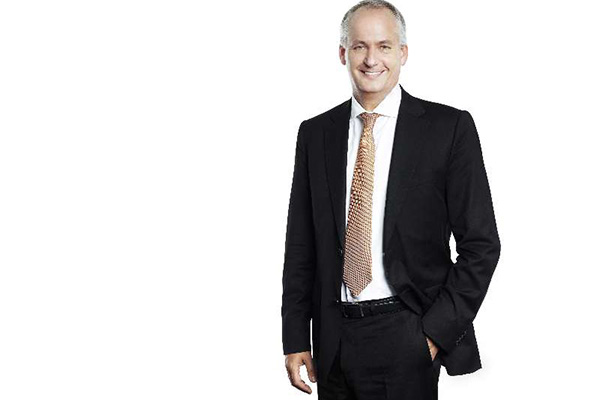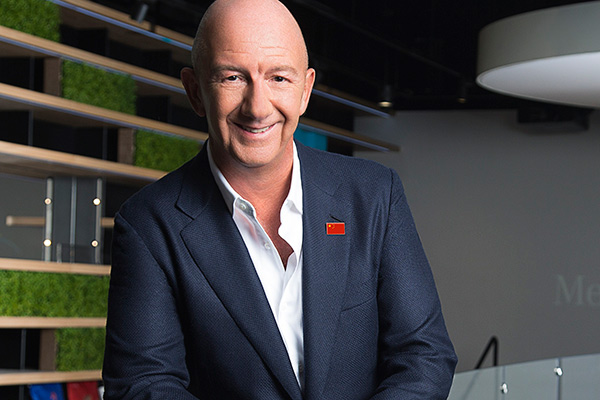
Capping off a year of solid development, Mercedes-Benz has called for stepping up efforts to continue its dedication to providing customer-oriented mobility solutions and delightful customer experience in the new era of human mobility.
The German auto brand did a sound job in 2017, with more than half a million vehicles sold – for the first time ever in China – in just the first ten months of the year, surpassing its full-year 2016 sales with two months still remaining. The passenger vehicle market continues to expand for the German company, with 2 million vehicles sold since 2013, higher than the average level of any other market worldwide, putting them at the forefront of premium automakers.
“For long-term success in China, there are many more factors than what you’re selling in a quarter,” said Hubertus Troska, member of the board of management, Daimler AG, responsible for China.
“It is about whether we are capable of putting the right products into the market, and whether customers appreciate our products with the right value.” This period of flourishing in the premium auto segment is not likely to come to an end any time soon, as China’s economy experienced an above-average 6.9 percent growth in the first three quarters.
“I think we’re up for a very good period. We’ re positive about China’s economic development and the automotive market. And we will be part of it,” Troska added.

“Five years ago, you know that we were not in the position we are in now. It’s been a challenging adventure, but we have done a lot,” said Nicholas Speeks, the company’s president and CEO.
Back then, when he was nominated to the post, the company was not in such a choice position, with figures a far cry behind the competition. However, these are trials Mercedes-Benz has endeavored to overcome. Its performance in its largest market validates that these accomplishments did not merely fall into the company’s lap, being both hard-earned and well-deserved. “It’s very simple: It’s the result of a lot of work, by a lot of people, that’s gone in over many years,” said Speeks. “It is day-by-day, step-by-step that we try and improve our standing.”
“If as a result of that, we are, for whatever reason, in a leading position, that’s wonderful, but it is not the most important thing.”
He echoed Troska and said that staking claim to such numbers for a minuscule amount of time on Dec 31, is something of a parlor trick, not something to strive for. By achieving such performance, Mercedes-Benz has put a lot of thought into meeting changing customer demands in this market, from personalized and market-exclusive services, to enriching product lines for a diversified customer group.
One initiative in particular stands out, with the company introducing the GLA SUV this year to partner with the League of Legends World Championship 2017, one of the world’s most influential eSports tournaments, with 100,000 on-site audience members and millions of viewers online. “We were proud to be able to sponsor the biggest gaming community,” Speeks said. “E-sports is something that we are going to get into in a big way.” As China enters this age of digitalization, marked by aspects such as eSports, a greater demand for online shopping and services has emerged, and Mercedes-Benz is ahead of the curve. Their online e-commerce platform, for instance, so far provides online viewing, chat, and selection and ordering for 115 variants of 35 models, covering 475 dealers in 217 cities nationwide. During the latest Singles Day shopping event, Mercedes-Benz’s total online revenue reached over 2 billion yuan ($300 million).
Besides the online focus, the company has offered offline services in many ways as well, creating a premium experience for customers, such as the Mercedes me Club that provides members with personalized services, including airport VIP services. “It’s something that we are working on,” Speeks said, “to provide additional services all the time.”
While focusing on enhancing the traditional business, the company is also investing in the future. “New energy vehicles are China’s vision and, therefore, we have no doubt that we need to invest heavily,” Troska said.
The company has announced investment of 5 billion yuan in electric cars and for local battery manufacturing in China, together with their partner Beijing Automotive Industry Corp, right on the heels of a 1 billion yuan increased investment in DENZA together with BYD.
“The NEV policies are currently focused more on import and production, which is important. Equally so, we believe, is attention to the retail end, making sure to create a level playing field for all players and ensuring a great experience for NEV customers,” said Speeks.
China has been the largest new energy vehicle market since 2015. It is estimated such cars will make up 15 to 20 percent of sales by 2025 in the country.
Troska said the company will launch the locally-produced EQC, the first pure electric Mercedes-Benz model, in China in 2019. Since China has the highest number of cities with the highest population, Troska said he firmly believes China will develop new energy technologies at an unprecedented rate. “I actually always tell my colleagues, China could be faster than the rest of the world.”
This fast pace of development helps garner incredible sales for Mercedes-Benz, having witnessed 56 months of continuous growth. One would think there would be a lot of pressure to sustain this momentum, but Speeks said he sees it as a glimmer of hope that just keeps the company on its toes. “We have every confidence in our brand. We have every confidence in our partner BAIC, in our dealer network, and we have – with all due humility – I think we have confidence in ourselves.”


